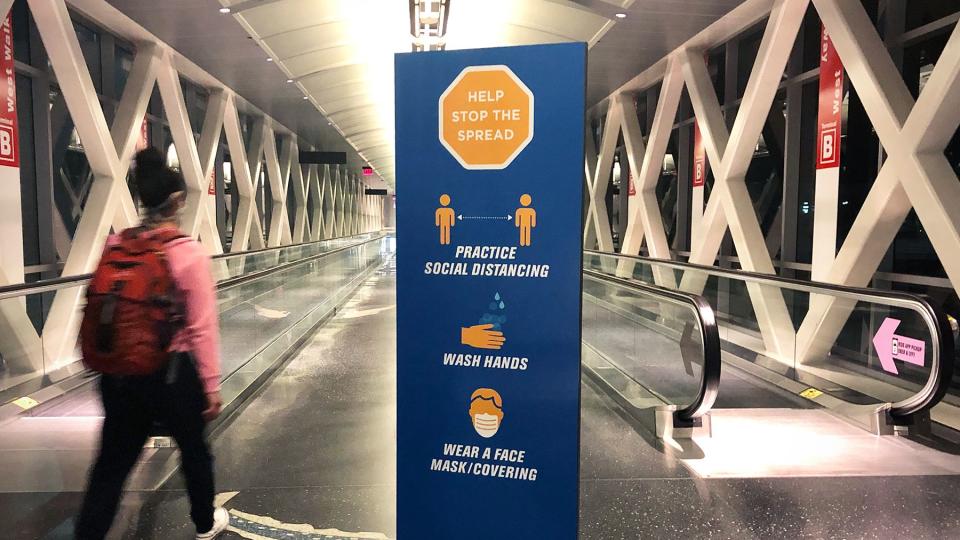U.S. Travel Ban for Countries Impacted by Omicron Variant Goes Into Effect
Countries all around the world announced travel restrictions from southern Africa amid the emergence of a new and concerning COVID-19 variant, omicron, as experts work to determine how much of a threat it poses.
Starting Monday, the United States is implementing a ban on travel from South Africa along with seven other neighboring countries "as a precautionary measure until we have more information," President Joe Biden said in a statement. The ban, which does not affect American citizens, comes just weeks after the U.S. lifted restrictions on vaccinated foreign travelers.
In addition to South Africa, travelers coming from Botswana, Zimbabwe, Namibia, Lesotho, Eswatini, Mozambique, and Malawi will not be permitted to enter the U.S.
"As we move forward, we will continue to be guided by what the science and my medical team advises," Biden added.
The variant was first detected in South Africa and reported to the World Health Organization on Nov. 24. The WHO designated omicron a "Variant of Concern" two days later due to its "large number of mutations, some of which are concerning," but much remains unknown.
So far, cases have been detected in Canada, Australia, Israel, the United Kingdom, Italy, Germany, France, Hong Kong, and more, according to the Washington Post.
In addition to the U.S., several other countries have implemented similar travel bans from the region, including the UK, the European Union, Australia, Canada, Thailand, and Singapore, among others, CNN reported.
Dr. Anthony Fauci, Biden's chief medical advisor, said it will take about two weeks to learn "more definitive information on the transmissibility, severity, and other characteristics of the variant," according to a White House statement. But Fauci said he believes that the current available vaccines "are likely to provide a degree of protection against severe cases of COVID" and boosters "provide the strongest available protection."

Erin Clark/Getty Images
While the variant has yet to be detected in the U.S., Fauci told ABC's "This Week" on Sunday that it's only a matter of time.
"We all know when you have a virus that has already gone to multiple countries, inevitably it will be here," he said. "The question is, will we be prepared for it?"
Fauci added that travel bans won't completely prevent it from coming to the U.S., but should "slow things down."
Israel took it a step further, imposing a total ban on all foreigners from coming into the country, becoming the first country to shut its borders completely in response to the new variant, Reuters reported. The decision comes less than a month after Israel started welcoming individual tourists for the first time in more than 18 months.
Similarly, Japan closed its border to non-resident foreign nationals starting Tuesday, according to the U.S. Embassy & Consulates in Japan.
Alison Fox is a contributing writer for Travel + Leisure. When she's not in New York City, she likes to spend her time at the beach or exploring new destinations and hopes to visit every country in the world. Follow her adventures on Instagram.


